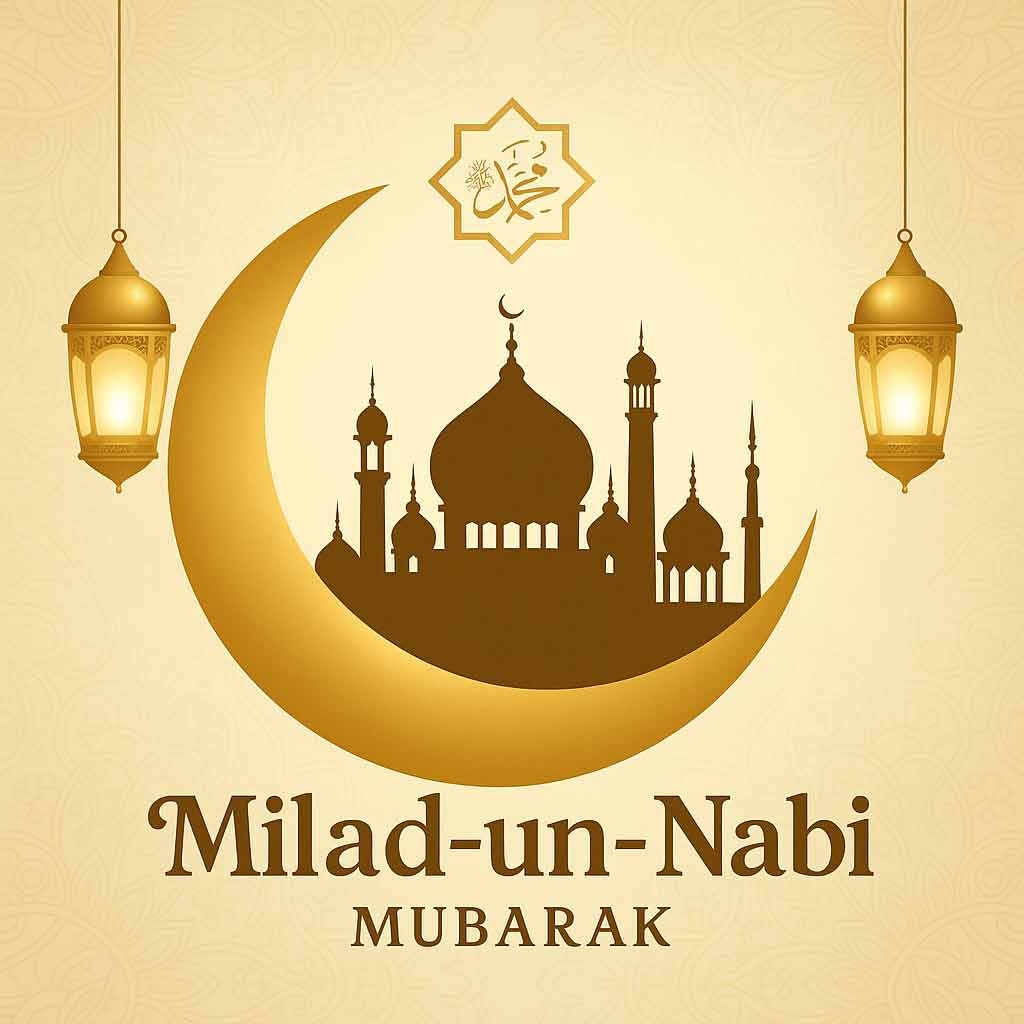Milad-un-Nabi
– The Birth of the Prophet Muhammad

Milad-un-Nabi Mubarak: Celebrating the Birth of the Prophet of Mercy
Milad-un-Nabi, also known as Mawlid al-Nabi, marks the birth anniversary of Prophet Muhammad (peace be upon him), who is revered as the final messenger of Islam. Observed in the month of Rabi’ al-Awwal — the third month of the Islamic lunar calendar — this day holds immense spiritual, moral, and cultural significance for Muslims around the world. The phrase “Milad-un-Nabi Mubarak” translates to “Blessed Birth of the Prophet”, a greeting that conveys joy, reverence, and gratitude for the Prophet’s life and teachings.
Prophet Muhammad (PBUH) was born in 570 CE in Makkah, a city that was at that time divided by tribalism and social inequalities. His birth brought a message of unity, compassion, and justice that would go on to transform not just Arabia but the moral and spiritual fabric of humanity. His life became a shining example of patience, forgiveness, humility, and unwavering faith in God.
For Muslims, Milad-un-Nabi is not merely a commemoration of a historical event — it is an opportunity to reflect deeply on the Prophet’s life, values, and message. The Prophet (PBUH) emphasized the importance of honesty, charity, equality, and kindness toward all living beings. His teachings continue to serve as a timeless guide for personal conduct, social harmony, and ethical living. On this sacred occasion, believers renew their commitment to follow his example, striving to embody mercy and compassion in their daily lives.
Historical and Cultural Observance
The celebration of Milad-un-Nabi varies across regions and cultures, yet the essence remains the same — to honor and remember the life of the Prophet (PBUH). In many countries, streets, mosques, and homes are illuminated with lanterns and lights. Processions, gatherings, and religious discourses are organized, where scholars recite poetry (naats) and narrate episodes from the Prophet’s life. People exchange greetings of “Milad-un-Nabi Mubarak”, offer special prayers, and distribute food and sweets to express gratitude and share blessings with others.
In some communities, the day is observed quietly with prayers, fasting, and recitation of the Holy Qur’an. In others, it is marked with public celebrations, charitable activities, and communal meals. The diversity of observance highlights Islam’s rich cultural heritage and the universality of the Prophet’s message of peace and brotherhood.
The Message of Peace and Compassion
The Prophet Muhammad (PBUH) is often called “Rahmat-ul-lil-Alameen” — “Mercy to all the worlds.” His message transcends time, geography, and faith. He called for respect toward others regardless of race, religion, or status, teaching that the best among people are those who bring benefit to others. His legacy reminds humanity of the need for empathy, justice, and mutual respect — virtues that are especially relevant in today’s world.
Milad-un-Nabi serves as a reminder that true devotion to the Prophet lies not only in celebration but in living by his example — through kindness, humility, and service to humanity. It is a time to strengthen one’s faith, seek forgiveness, and commit to spreading goodness and understanding.
A Day of Reflection and Renewal
As Muslims around the world gather to mark this blessed day, Milad-un-Nabi becomes a moment of reflection — on how far we have come in embodying the values the Prophet (PBUH) stood for. It is also a time to renew our pledge to uphold justice, show compassion, and live with integrity.
In essence, Milad-un-Nabi Mubarak is not just a greeting but a heartfelt reminder: that the light of the Prophet’s teachings continues to guide humanity toward peace, tolerance, and unity. His life remains a beacon for all who seek to live with purpose, dignity, and devotion to God.
